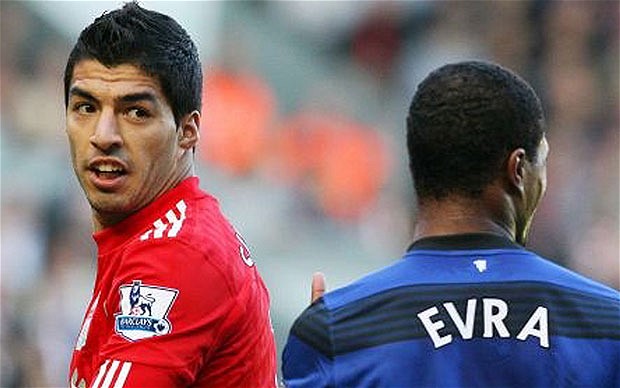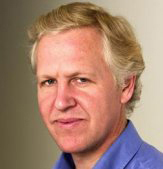Like other writers, I spent the first two hours of 2012 engrossed not in a bottle of Veuve Cliquot, but the intricacies of the famous October 15 altercation between footballers Luís Suárez and Patrice Evra.
And a right riveting read the 115 pages of findings drawn up by the Independent Regulatory Commission that imposed an eight-match ban – subject to appeal – on Suárez, the Liverpool striker, turned out to be.
It aroused in me all manner of reactions – not least a desire to congratulate the English football authorities on the way they have handled the case, if not their sense of timing in making the document public on New Year’s Eve.
I am not sure these reactions add up to a coherent argument, so I’ll endeavour to list the main ones point by point.
There are two things in this context you should probably know about me: a) as a kid I was a mad keen Liverpool fan and I still have a very soft spot for them; b) though not remotely fluent, I have a university degree in modern languages, one of which was Spanish, the language the altercation was conducted in.
Now, those points:
There is a wonderful simplicity to being a football fan.
Everything your team does is good; everything the other lot do is bad; everything the referee does is deeply suspect.
It is a refreshing contrast to the complexities of real life and is, I am convinced, part of the basis of the sport’s appeal.
There are times, however, when even the most diehard fans need to step out of this beguiling sanctuary and assess events on their merits.
(You could make much the same point about patriotism.)
This is one of those times.
Having tried to digest the report – you can do the same by clicking here – I am not surprised, based on the way the process is presented, that the commission found Suárez to be “an unreliable witness on critical parts of his evidence”.
It went on: “His evidence was inconsistent with contemporaneous evidence in the form of video footage…
“He changed his account over time in a number of respects.
“This all combined to cast grave doubt on the reliability of the remainder of his evidence on the main factual disputes.”

I am somewhat surprised that the Commission is quite as complimentary as it is about Evra, describing him as “an impressive witness” and “a credible witness whose evidence was not seriously undermined in any material respect”.
The Manchester United player was initially under the mistaken impression that Suárez had called him a nigger – and this is what he said he told referee Andre Marriner after the match.
He later accepted that the correct translation of the Spanish word “negro” in this specific instance was “blackie”.
This is not in any way to condone the use of the word in the manner alleged by Evra, whose version of events the Commission essentially accepts.
But I do find it odd that a man who speaks good enough Spanish to use the offensive and idiomatic phrase “concha de tu hermana”, with which Evra began the altercation after being fouled by Suárez, should misconstrue the meaning of a word as commonplace as “negro”, which is the regular Spanish word for the colour black.
I also would not regard a footballer who resorts to such a phrase on the pitch, albeit after having been fouled – it translates literally as “your sister’s pussy”, although the accepted translation was “fucking hell” – as a particularly good role model.
I don’t see how, from the moment Liverpool manager Kenny Dalglish walked into the referees’ dressing room and told them Suárez had told him he had referred to Evra being black, the club could be surprised by anything that has subsequently happened.
The suggestion was that this was in response to Evra calling the Liverpool man “a South American” [Suárez is Uruguayan] and was not meant as an insult.
This was, however, denied by Evra and his denial accepted by the Commission.
It needs to be underlined that Evra said in his evidence he did not think Suárez was a racist.
The Football Association made clear, moreover, that it did not contend that Suárez acted in the manner alleged out of deep-seated racial prejudice.
In the Commission’s words: “The charge against Mr Suárez was that he used insulting words which included a reference to Mr Evra’s colour.
“We have found that charge proved on the evidence and arguments put before us.”
It does seem odd, if events transpired, in the way the Commission concludes that they “probably” did, as outlined on pages 95 and 96 of the document, that a man with a clean record in this regard should resort as readily as he is alleged to have done to references to Evra’s skin colour.
The FA thought it likely that Suárez was seeking to provoke Evra, so as to cause him to be sent off, thereby gaining a competitive advantage in the game.
It was further submitted that such behaviour was to be deplored.
I agree, it is to be deplored – but I also think that the average Premier League game probably contains many instances of players using ruses of various kinds, though not one hopes allusions to skin colour, to try to gain an edge.
Some may even see it as a professional obligation.
David Owen worked for 20 years for the Financial Times in the United States, Canada, France and the UK. He ended his FT career as sports editor after the 2006 World Cup and is now freelancing, including covering the 2008 Beijing Olympics and 2010 World Cup. Owen’s Twitter feed can be accessed by clicking here.

